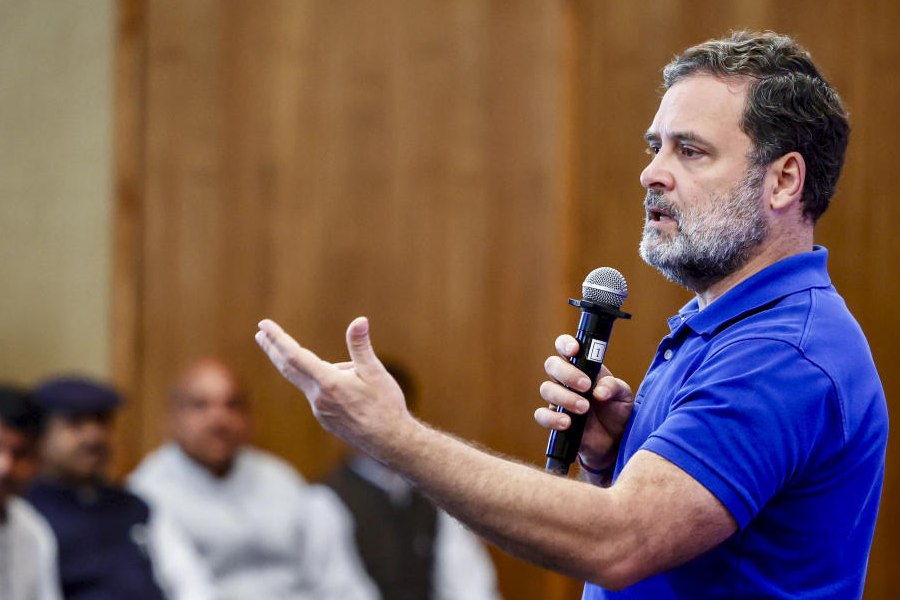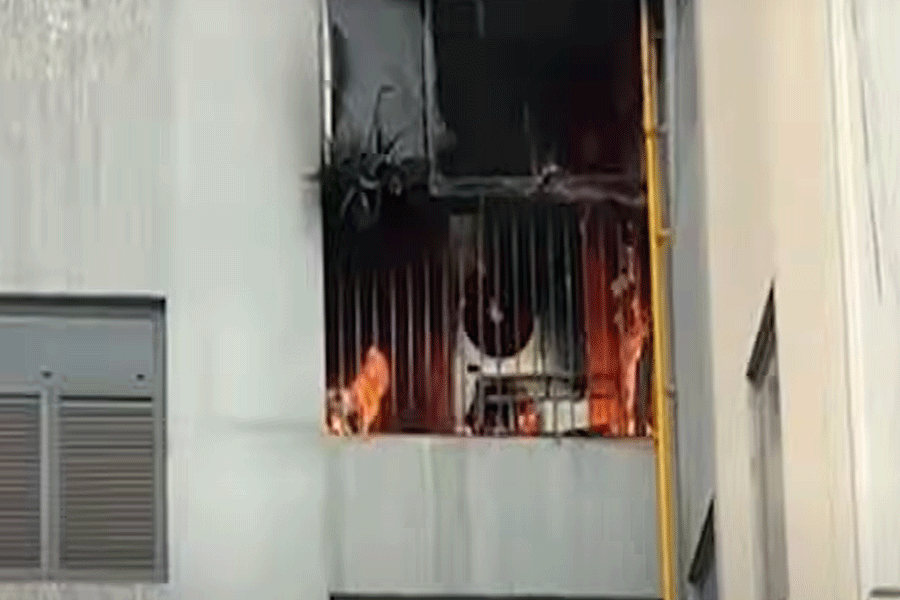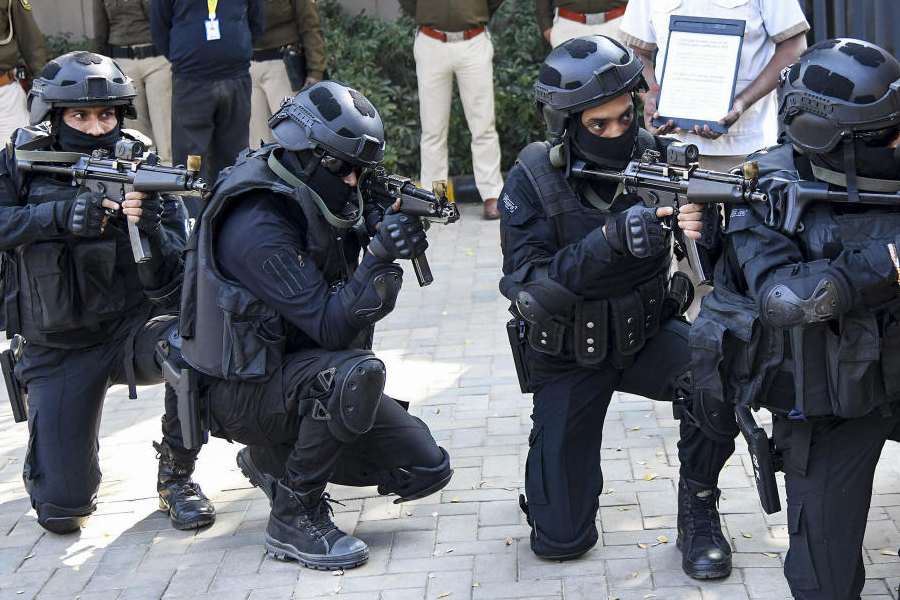 |
| Supporters of the Hafiz Saeed-led Jamaat-ud-Dawa participate in an anti-India demonstration to condemn the hanging of Afzal Guru in Rawalpindi on Sunday. (Reuters) |
New Delhi, Feb. 10: Lashkar-e-Toiba founder and suspected 26/11 mastermind Hafiz Saeed has found an opportunity to stoke trouble in Kashmir by selectively quoting from the Supreme Court judgment upholding Afzal Guru’s death sentence.
Saeed fished out from the over 300-page judgment the phrase “the collective conscience of the society will be satisfied if the capital punishment is awarded to the offender” and tweeted on it this evening.
“Our promise remains unchanged, We WILL satisfy the ‘Collective Conscience’ of Kashmiri people, with the help of Almighty ALLAH #AfzalGuru,” Saeed posted.
The tweet appeared to suggest that if Afzal was hanged to satisfy the “collective conscience” of Indian society, the Lashkar founder was free to fan the flames for the “collective conscience” of Kashmiris.
But the court’s elaboration was more detailed.
“The gravity of the crime conceived by the conspirators with the potential of causing enormous casualties and dislocating the functioning of the Government as well as disrupting normal life of the people of India is something which cannot be described in words. The incident, which resulted in heavy casualties, has shaken the entire nation and the collective conscience of the society will be satisfied if the capital punishment is awarded to the offender,” a bench of Justices Venkatarama Reddy and P.P. Naolekar had said in their order on August 4, 2005.
The “collective conscience” phrase is often cited by rights activists and some former jurists who disagree with the verdict.
Saeed’s tweet came as Kashmir simmered over yesterday’s hanging of Afzal, who hailed from Sopore. The Lashkar had yesterday warned of retaliation.
In its 2005 judgment, the Supreme Court had also noted that there is no doubt the Parliament attack was without parallel “in the history of the Indian republic” while ruling that the most appropriate punishment for Afzal was the death sentence.
“The appellant… is a menace to the society and his life should become extinct. Accordingly, we uphold the death sentence,” the bench said.
While intelligence agencies reckon the hanging was necessary despite concerns it could be seen in the Valley as a provocation, others questioned the timing.
“It is a purposeless decision. You have put Kashmir in trouble where there was none and weakened Omar Abdullah,” said A.S. Dulat, ex-chief of RAW, the country’s external intelligence wing.
Much of the Valley has been under curfew since yesterday, with the chief minister camping in Srinagar despite the government having shifted to winter capital Jammu.
For the Pakistan-based Saeed, though, Afzal’s hanging could not have come at a better time. Tomorrow is the death anniversary of Maqbool Bhat, the Jammu and Kashmir Liberation Front co-founder who was hanged and buried at Tihar jail on February 11, 1984.
Saeed was quick to club the two executions on the eve of Bhat’s death anniversary. “Maqbool Bhatt’s martyrdom infused new life in the struggle of #Kashmir, #afzalGuru’s sacrifice will pave the way for Freedom, Insha’Allah,” Saeed said in his tweet.
He had begun commenting on “shaheed (martyred) Afzal Guru” within hours of the hanging yesterday morning. He termed the execution “judicial terrorism” by India and called for “peaceful protests” across Pakistan.










